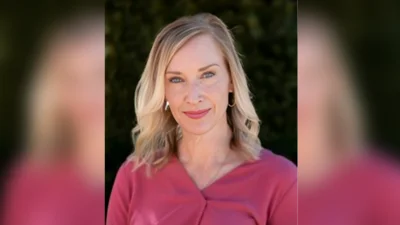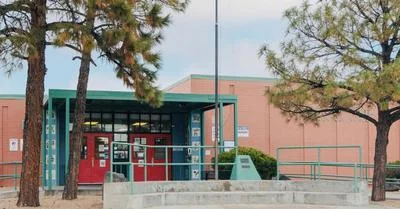Every young person deserves the opportunity to pursue higher education, and the Davis New Mexico Scholarship is making that opportunity a reality for first-generation college students in the state.
Philanthropist Andrew Davis founded the Davis New Mexico Scholarship to provide pathways to higher education and help mitigate the negative effects and stigma of generational opportunity gaps in education. Fifty first-generation college students will be honored and awarded full-ride scholarships in a ceremony on Saturday at Santa Fe Preparatory School.
“[Davis] wanted to enable students from New Mexico to show themselves, their communities, and also the rest of the country and world just how special they are in the face of statistics that say that New Mexico is not a good place to learn,” Sam Ritter, Davis New Mexico Scholarship director, told New Mexico Sun. “That was something that Andrew Davis vehemently disagreed with, and [he] said that we need to give first-generation students from New Mexico the opportunity to really show that they are on par and ready to be out there competing with the rest of the world.”
The barriers to a college education are particularly difficult for first-generation students from rural families. Because of this, the scholarship program has worked to expand its reach out of Santa Fe into northern New Mexico for years and has partnered with organizations from Espanola Valley and the Navajo Nation to do so.
“While there are some amazing students there [in Santa Fe], there’s also wonderful scholars in the rest of the state,” Ritter said.
Recently, the Davis New Mexico Scholarship launched the Rural Opportunities for College Access program (ROCA) to explicitly give rural students an opportunity to not only attend college in or out of state but also have a resource for advocacy and awareness once they are first-generation college students.
Those added resources outside of tuition help are part of what sets the Davis New Mexico Scholarship apart, Ritter said. Being very hands-on with students in their freshman year of college is paramount in helping the young graduates navigate their new chapter and make informed decisions when faced with new challenges. This is especially important for students who leave New Mexico to attend a university somewhere else in the country.
The guidance brings some peace of mind to the family left back home as well. Parents of first-generation students have no anecdotal college experience of their own to help their children through the first year. These parents can find solace and relief knowing their scholars are in good hands.
“[Parents] need to be treated as real partners in the process,” Ritter said. “Our approach is that, over the long term, we are here for the students, for an entire family. We are here to support them. Just because the parents don’t have a college education doesn’t mean that they don’t have an important opinion.”
Students attending this year's ceremony come from 23 high schools across the state and include the first class of students from the ROCA program, according to a Davis New Mexico Scholarship press release.
The scholarship has developed special partnerships with several universities across the West and Midwest that provide exceptional support for first-generation college students. The ceremony on Saturday will mark the addition of Occidental College in Los Angeles as a new partner college.
Occidental joins existing Davis New Mexico partner schools which include Lawrence University (Appleton, WI), Southwestern University (Georgetown, TX), St. Edward’s University (Austin, TX), University of Denver (Denver, CO), and University of Portland (Portland, OR).
Davis’ scholarship has awarded over $15 million in full-ride college tuition to over 150 high school graduates/first-generation college students. This program has lasting impacts on the bright young minds of New Mexico.
For example, scholarship alumna Angelica Lopez is a graduate of St. Edwards University and an Albuquerque native who wanted to come back to New Mexico after college and, knowing how it felt to walk in their shoes, wanted to give back to the students of the state.
“After graduation, she moved to Espanola and started working with students in the Valley,” Ritter said. “She really has done incredible work over there … As a teacher, there’s no other joy than seeing your former student and former scholar grow into being real colleagues. And I think that’s certainly true with Angelica.”









